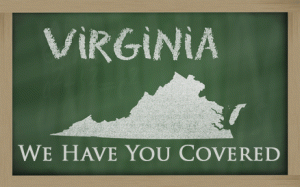 The degree of attenuation between the amount paid out under a life insurance policy and the potentially limitless value of life presents another counter argument to allowing life insurance subrogation in Virginia. One of the conditions precedent in allowing a subrogation action is the recompense of the insured. However, how can an insurance company put a value on life? It can be credibly argued that the courts place a value on life all the time in the form of wrongful death settlements and verdicts. Furthermore, an insurance company’s payment of the pre-determined amount under the policy should be viewed as “making whole” the insured.
The degree of attenuation between the amount paid out under a life insurance policy and the potentially limitless value of life presents another counter argument to allowing life insurance subrogation in Virginia. One of the conditions precedent in allowing a subrogation action is the recompense of the insured. However, how can an insurance company put a value on life? It can be credibly argued that the courts place a value on life all the time in the form of wrongful death settlements and verdicts. Furthermore, an insurance company’s payment of the pre-determined amount under the policy should be viewed as “making whole” the insured.
This may be one of the trickiest needles to thread in the argument for allowing life insurance subrogation in Virginia. Many people would be uncomfortable positing the payment of a term-life insurance policy as the value of the insured’s life.
Life Insurance Subrogation: Investment or Indemnity? (Part 2)
 The bedrock of subrogation is the concept of indemnity, that is, the act of stepping in to collect a definite, cognizable amount of money, an insurer paid on behalf of another. One of the major arguments against allowing life insurance subrogation is that life insurance is, in essence, an investment vehicle rather than an indemnity payment.
The bedrock of subrogation is the concept of indemnity, that is, the act of stepping in to collect a definite, cognizable amount of money, an insurer paid on behalf of another. One of the major arguments against allowing life insurance subrogation is that life insurance is, in essence, an investment vehicle rather than an indemnity payment.
For instance, in an automotive subrogation case the insurer pays out a certain amount of money based upon the repair bills, rental car expenses and medical bills. However, in life insurance there is a pre-determined amount of money paid out to the insured’s estate triggered by the policyholder’s death. This occurs no matter what the circumstances of the death were, barring suicide of course. There should be a distinction made between short term, or “term life” policies and long-term life insurance policies. the former are more of a hybrid between investment and indemnity, whereas long-term life insurance policies resemble investment vehicles.
Life Insurance Subrogation: What's the Difference Between Conventional and Equitable Subrogation? (Part 1)
 The possibility of life insurance subrogation actions arising in Virginia are, admittedly, remote. However, after reading George Swan’s article entitled “Subrogation in Life Insurance: Now Is The Time”, with the right facts and an appropriately written term life insurance policy, there just might be chance to cultivate this new vine from the long established subrogation soil. Swan published this article in the Insurance Counsel Journal almost 31 years ago, so the clarion call of the author carries with it an unintended irony. Nevertheless, his cogent examination and discussion of the pitfalls, whether real or perceived, governing life insurance subrogation should not be discounted. Before jumping into the four core problems facing a litigator attempting a life insurance subrogation action, the difference between contractual, or conventional subrogation, and equitable subrogation should be discussed.
The possibility of life insurance subrogation actions arising in Virginia are, admittedly, remote. However, after reading George Swan’s article entitled “Subrogation in Life Insurance: Now Is The Time”, with the right facts and an appropriately written term life insurance policy, there just might be chance to cultivate this new vine from the long established subrogation soil. Swan published this article in the Insurance Counsel Journal almost 31 years ago, so the clarion call of the author carries with it an unintended irony. Nevertheless, his cogent examination and discussion of the pitfalls, whether real or perceived, governing life insurance subrogation should not be discounted. Before jumping into the four core problems facing a litigator attempting a life insurance subrogation action, the difference between contractual, or conventional subrogation, and equitable subrogation should be discussed.
What is the difference between conventional (contractual) subrogation and equitable subrogation?
Swan does a good job delineating the differences, in both mechanics and the treatment received under the law, between conventional and equitable subrogation actions. Conventional subrogation, the type my firm regularly litigates in Virginia General District Court and Circuit Courts across the state, is “premised upon an express agreement between the parties and is governed by contract law principles.” In such circumstances, the insurer can be subrogated to the rights of its insured to seek compensation from the third-party tortfeasor. This is the most common type of insurance subrogation.
Subrogation by operation of law is founded upon equitable principles. The insurer obligates himself to pay a debt for which another party is liable. Since subrogation rights are always expounded in the insurance contracts governing coverage, in Virginia subrogation cases are almost always of the “conventional” type. Despite the different “theories” of subrogation, both are founded on the principle that the insurer suffers a fixed financial loss and the insurer seeks to collect from both the tortfeasor and the insurance company would allow him a “windfall.”
The Intersection of Body Paint and the First Amendment
Brevity and the law are common, if not intentional, partners. The latest article in Slate discussing the constitutionality of body paint under the purview of the 1st amendment confirms as much. Brian Palmer, the author of the article, discusses the inconsistent application of anti-nudity laws throughout the country over the last two decades. In particular, how it seems that those ensconced in body paint are rarely arrested, and indeed, have been interviewed on live television with no repercussions. However, it seems that officials can take a reactionary stance when body painting proliferates beyond a few protests, as occurred in Federal Way, Washington, in response to body painted baristas.
In a survey of state statutes, it seems that legislators give body painters “a pass” with vague references to nudity, that could be interpreted to shield body painters from prosecution. Interestingly, the federal banning nudity in national parks defines nudity as failure to “cover with a fully opaque covering the genitals, pubic areas, rectal area or female brewast below a point immediately above the top of the areola.” This would seem to exclude an individual clad with body paint from violating the law.
Virgnia Collection Attorneys
 Are you looking for Virginia collection attorneys for your business or to collect a past judgment? If so, consider contacting Chaplin & Gonet to discuss your collection needs and how our office can help you achieve your collection goals.
Are you looking for Virginia collection attorneys for your business or to collect a past judgment? If so, consider contacting Chaplin & Gonet to discuss your collection needs and how our office can help you achieve your collection goals.
Past due accounts and uncollected judgments represent lost income to Virginia businesses and Chaplin & Gonet can help turn those past due accounts into revenue streams. How is Chaplin & Gonet different than other Virginia collection attorneys? Our attorneys cover the entire state of Virginia and you can rest assured that our experienced litigation and collection attorneys are the only ones handling your claims.
Unlike many collection agencies or collection firms, we do not have to outsource the majority of our collections work. You know who you are working with, which means increased peace of mind for our clients. Our office is located in Richmond, which gives us convenient access to all parts of the state. Call our offices today to learn more about our services and how we help Virginia businesses thrive in todays mobile, fast-paced society.
Autonomous Vehicle Liability and Subrogation
 The future of subrogation, especially automotive claims, largely hinges upon the political reactions to the burgeoning autonomous vehicle field. Pioneered by Google and integrated in small ways by various car manufacturers, automation and computer-assisted driving is the future of transportation. In a recent article by Cory Turner at NPR, Turner explores the question of who would be liable in the event of a car crash involving an autonomous vehicle?
The future of subrogation, especially automotive claims, largely hinges upon the political reactions to the burgeoning autonomous vehicle field. Pioneered by Google and integrated in small ways by various car manufacturers, automation and computer-assisted driving is the future of transportation. In a recent article by Cory Turner at NPR, Turner explores the question of who would be liable in the event of a car crash involving an autonomous vehicle?
Turner’s article states that 90% of fatal car accidents occur due to human error and that autonomous cars would help bring down automobile related fatalities. However, there are concerns by many in the automotive manufacturing industry and those in the insurance industry who worry about how accidents involving autonomous vehicles would be litigated. Dang Gage of the Alliance of Automobile Manufacturers worries that “We have great exposure as an industry in terms of product liability . . . And I think as an industry . . . most of us suspect that there will always be someone in the driver’s seat.” These concerns are echoed by Robert Hartwig, president of the Insurance Information Institute who took a shot at plaintiff’s attorneys lamenting: “It’s absolutely the case that after the first accident involving an automated vehicle, there will be an automated ambulance chaser following.”
The most intriguing part of Turner’s article, from a subrogation point of view, is the discussion of a possible remedy for the uncertain liability aspect of manufacturing autonomous cars. Turner recounts the vaccine industry’s own struggle with the threat of litigation stifling innovation. In the 1980s, the rising threat of liability prompted many vaccine manufacturers to pull out of the business altogether. Congress stepped in and created a new system, including special hearings, for dealing with claims made by individuals pointing to vaccines as the cause. The victims were paid out of a fund created by a tax on vaccines. This prompted the return of some vaccine manufacturers.
What does all this mean for subrogation attorneys? Most likely there will be a diminution in automobile related accidents over the next 10-15 years as technology continues to improve and policies begin to coalesce at the state and federal levels. One could see automobiles become more like airplanes in the next decade or two. A driver would have to sit in the front seat ready to take over, but the vast majority of driving is done by computer control. This would likely cut down on accidents, reduce traffic congestion and promise many other unforeseen benefits. When one considers the amount of litigation in courts currently that arises out of automobile accidents autonomous vehicles could prove a boon both for motorists in the form of increased safety and the courts who are perpetually dealing with tight budgets and swelling dockets.
Equitable Subrogation Fails to Pierce Virginia Sovereign Immunity
What Is Equitable Subrogation?
The concept of equitable subrogation is an old one. In the case of Centreville Car Care v. North American Mortgage, 263 Va. 339 (2002), the Supreme Court of Virginia summarized the law of equitable subrogation as follows:
Subrogation is the substitution of another person in place of the creditor to whose rights he succeeds in relation to the debt. This doctrine is not dependent upon contract, nor upon privity between the parties; it is the creature of equity, and is founded upon principles of natural justice. Subrogation not being a matter of strict right, but purely equitable in its nature, dependent upon the facts and circumstances of each particular case, no general rule can be laid down which will afford a test in all cases for its application. Nevertheless, we have expressly acknowledged that “Virginia has long been committed to a liberal application of the principle of subrogation.”
Although no bright-line rule for the resolution of claims for subrogation can be formulated because the merits of such claims are necessarily fact specific, several principles or guidelines are uniformly established in our cases that assist in the proper analysis of such claims. First, subrogation is not appropriate where intervening equities are prejudiced. Second, ordinary negligence of the subrogee does not bar the application of subrogation where “[a]n examination of the facts . . . shows that the equities strongly favor” the subrogee. Id. at 345.
What is Sovereign Immunity?
The concept of sovereign immunity in Virginia is a complicated one, but at its core it is the doctrine that states the government should have some immunity from lawsuits in order to preserve the efficacious function of government. The reason behind the doctrine is simple: if employees of the state were in constant fear of being sued civilly for every mistake the function of government would grind to a halt and harm the community. In Virginia, there is a convoluted body of law that sets out specific abrogations to this historic notion. This includes several statutes, the one involved in the present case: XL Specialty Company v. Commonwealth of Virginia, Department of Transportation., 624 S.E.2d 658, 47 Va. App. 424 (Va. 2006), is Virginia Code section 8.01-192, which allows contractors to sue the Commonwealth of Virginia for breach of contract.
What Happens When Equitable Subrogation and Sovereign Immunity Collide?
In short, if you are a surety of a construction contract in Virginia then you have no right to bring a legal action against the state, or one of its agencies, if that action does not arise from an arms length negotiation manifested in a contract. In the XL Specialty case, a construction company, Bravos Concrete, Inc., entered into a construction contract with the Virginia Department of Transportation (VDOT) to complete projects in Chesterfield and York Counties. Bravos had signed XL Specialty Insurance Company as their surety on the project. When Bravos breached the contract XL Specialty Co. entered into takeover agreements with VDOT, agreeing to arrange for the completion of the project. Xl Specialty v. Com. Dept. of Transp., 624 S.E.2d at 661. After completion of the construction, XL submitted a payment request to VDOT for completion of work defectively done by Bravos for which Bravos had already been paid by VDOT. Id. VDOT denied the claims and XL brought suit against the Commonwealth.
Department of Transportation (VDOT) due to the longstanding doctrine of sovereign immunity in Virginia. The Virginia Court of Appeals held that a surety of a construction contract was barred from bringing a claim against Commonwealth under an equitable subrogation theory. In XL Specialty Company v. Commonwealth of Virginia, Department of Transportation., 624 S.E.2d 658, 47 Va. App. 424 (Va. 2006), the Court strictly construed the Virginia Code section 8.01-192
Pawn Stars Explores Subrogation!

It is rare that a topic like insurance subrogation comes up in popular culture, but in a recent Pawn Stars episode tangentially touched on the topic. In the episode titled “Shekel and Hyde” the pawn shop owners bought a Shekel of Tyre coin. Shekel coins were a common currency used in biblical times. Of course, considering their age they are relatively rare today. The owners purchased the coin and sent it out for appraisal. Shortly thereafter, they discovered that the coin had been reported stolen by the original owner. Apparently the man who sold it to them had purchased it in good faith from a previous seller. Tensions rose as the owners waited to hear back from the police whether they had to return the stolen coin back to the original owner, despite having purchased it in good faith. Luckily for the pawn shop owners the owner had been compensated by his insurance company so the title to the coin was ostensibly clear. Or was it? Let’s explore whether the Pawn Stars had a right to keep the coin in light of the actual mechanics of subrogation law.
In reality, the insurance company could step into the shoes of their insured through a subrogation action and sue for the return of the coin or its equivalent cash value. This episode presented a classic subrogation fact pattern and helped illustrate the common misunderstanding concerning insurance and subrogation law throughout society. Most people think that once an insurance company pays out a claim they have no further rights to pursue the tortfeasor or wrong-doer.
No Witness Fees for Nonsuit at Trial
 In a recent decision by the Richmond Circuit Court, the court determined that the Va. Code § 8.01-380(C) does not allow recovery of defense witness fees for a nonsuit taken by the plaintiff at trial. What is most striking about the Richmond Circuit Court’s ruling is the lack of discretion for awarding fees at all if the nonsuit is taken during trial. This means, according to the Court’s ruling, a plaintiff can simply wait to take their first nonsuit at trial and it has virtually no risk of paying expert witness fees. In light of this ruling, plaintiffs are afforded the opportunity to literally settle the case “on the court house steps” without the Va. Code § 8.01-380(C) fee provision hanging over their heads.
In a recent decision by the Richmond Circuit Court, the court determined that the Va. Code § 8.01-380(C) does not allow recovery of defense witness fees for a nonsuit taken by the plaintiff at trial. What is most striking about the Richmond Circuit Court’s ruling is the lack of discretion for awarding fees at all if the nonsuit is taken during trial. This means, according to the Court’s ruling, a plaintiff can simply wait to take their first nonsuit at trial and it has virtually no risk of paying expert witness fees. In light of this ruling, plaintiffs are afforded the opportunity to literally settle the case “on the court house steps” without the Va. Code § 8.01-380(C) fee provision hanging over their heads.
Va. Code § 8.01-380(C) reads:
C. If notice to take a nonsuit of right is given to the opposing party within seven days of trial, the court in its discretion may assess against the nonsuiting party reasonable witness fees and travel costs of expert witnesses scheduled to appear at trial, which are actually incurred by the opposing party solely by reason of the failure to give notice at least seven days prior to trial. The court shall have the authority to determine the reasonableness of expert witness fees and travel costs.
No Nonsuit After Defective Signature

In a recent Norfolk Circuit Court case the judge ruled that a lawyer’s missing signature from the Complaint prevented them from taking a nonsuit, since the defective Complaint was not a “validly pending proceeding.” In this particular case, the the plaintiff’s signature appeared on the Complaint, but the attorney’s signature was not endorsed above their printed name.
This recent ruling is a poignant reminder for those Virginia subrogation attorneys and other plaintiff attorneys that any defective complaint can jeopardize a nonsuit. The strategic value of a nonsuit, the peculiar remedy in Virginia allowing the plaintiff to dismiss a claim voluntarily and thereby toll the statute of limitations by six months, cannot be overstated. When a case like this comes along it reinforces the need for close scrutiny of all pleadings, but especially complaints, as an innocent error can result in a statute of limitations problem and future bar complaints and ethics litigation.
